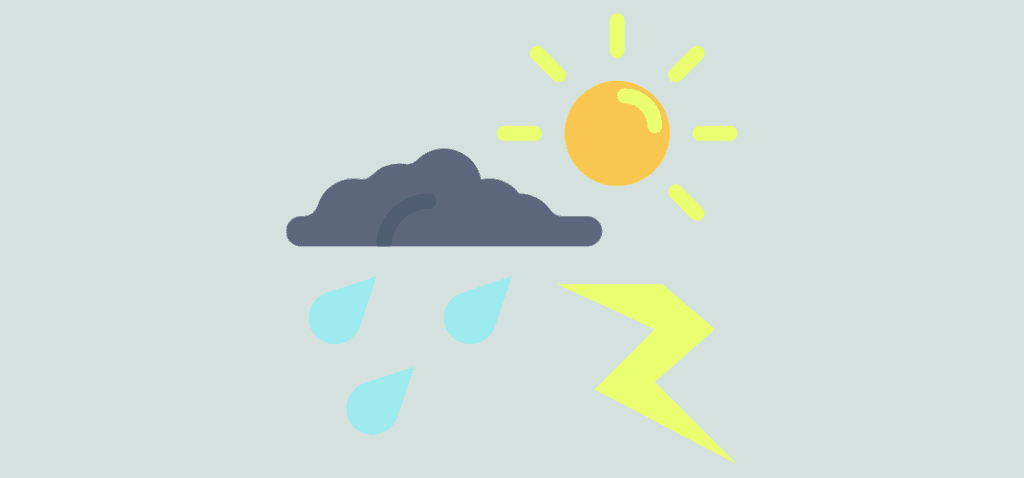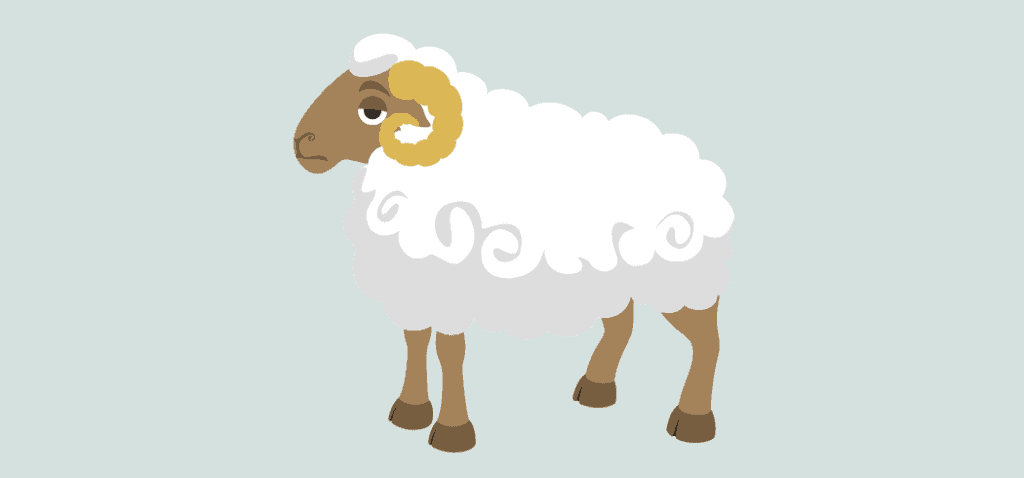Is it weather or whether or not? And what is a whether? If you struggle with the spelling and use of these homonyms, you aren’t alone. All three, despite having the same pronunciation, mean very different things.
Let’s look at their definitions and meanings so you better understand how to use them correctly in speech and writing.
What’s the Difference Between Weather, Whether, and Wether?
Weather and whether are homophones that can be easy to confuse, but they mean two very different things. Weather is the atmospheric condition of a specific locale at a specific time, while whether is a conjunction used when implying doubt or a choice between multiple alternatives. A wether is another homophone on this list and is defined as a castrated male sheep or goat which is unable to breed.
Definition and Use of Weather

Weather is primarily used as a noun but can also work as a verb and adjective. As a noun, it defines the temperature, cloud cover, humidity, wind, precipitation, etc., of a specific area at a particular time and explains the atmospheric conditions, both pleasant and unpleasant.
For example:
- I hope the weather cooperates on the day we planned our boat ride.
- Even though we had a bit of rainy weather at the water park, we still had fun.
- Has anyone checked the weather for tomorrow?
When weather is used as a verb, it can be used one of two ways. It can mean to leave something to the mercy of the elements to erode or degrade due to exposure to weather, elements, and use.
For example:
- The years of sun and salt weathered the deck chairs.
- The bag weathered from being hauled around on family vacations over and over.
As a verb, it can also mean to come through something safely, to survive an event or experience without damage or harm.
For example:
- You weathered that meeting like the professional you are.
- She weathered the storm of emotions from the loss and moved on to do great things.
Weather can be used as an adjective to provide the detail of looking old or worn.
For example:
- The weathered deck chairs needed a new coat of varnish for protection.
- The old, weathered couch cushions needed replacing.
Is it Weather or Whether the Storm?
These two are commonly confused in their use, but as explained above, the correct word would be weather when used as a verb.
For example:
- He weathered the storm his old job had created and learned from his mistakes for even greater success.
Definition and Use of Whether
Whether is a conjunction used when implying doubt or a choice between two or more word or phrase alternatives. It has a similar meaning to the word if, even if the words or phrases aren’t interchangeable.
For example:
- You have two choices whether you like it or not: leave or stay and work.
- I wonder whether the weather will be good on our road trip.
- I often wonder whether I chose the right career for me.
Definition and Use of Wether

Wether is the official name of a castrated male sheep or goat. It is a word not commonly used outside agricultural communities. However, it serves as an excellent analogy when used in the context of a bellwether, the castrated male sheep or goat who is collared with a bell to allow sheep and goat herders to locate their herd by the sound of the bell. The animals in the herd are also familiar with the sound to find their way back if they stray.
For example:
- We have six does and three wethers for sale. They are great animals for weed control.
Using Weather, Whether, and Wether in Writing
When you pull up the weather forecast on your smartphone or check online to see if a storm is coming tomorrow, you likely have a Seattle company to thank for the predictions. (The Columbus Dispatch)
The unstable weather pattern across the American Southwest persists, and so do the postponements to the Albuquerque International Balloon Fiesta’s 20th America’s Challenge distance race for gas balloons. (The Albuquerque Journal)
WWE superstar Daniel Bryan, who suffered a concussion in April, is ready to wrestle again, but doctors are split on whether that’s a good idea or not. (The Washington Post)
The Pentagon is grappling with whether the U.S. should use military force to protect U.S. trained and equipped Syrian rebels now that they may be the targets of Russian airstrikes. (The Portland Press Herald)
There was a panic in the orthographical sheep fold today, when it was noted that the bellwether who had been picking the path among the pitfalls of simplified spelling had abandoned the flock. (New York Times)
Let’s Review
Weather is what you experience outdoors when it is sunny, raining, or windy. Whether is a conjunction that implies a choice between two or more words or phrases. A wether is a neutered goat or sheep. They all are used very differently in speech and writing despite sounding exactly the same, so it is important to understand these differences.
